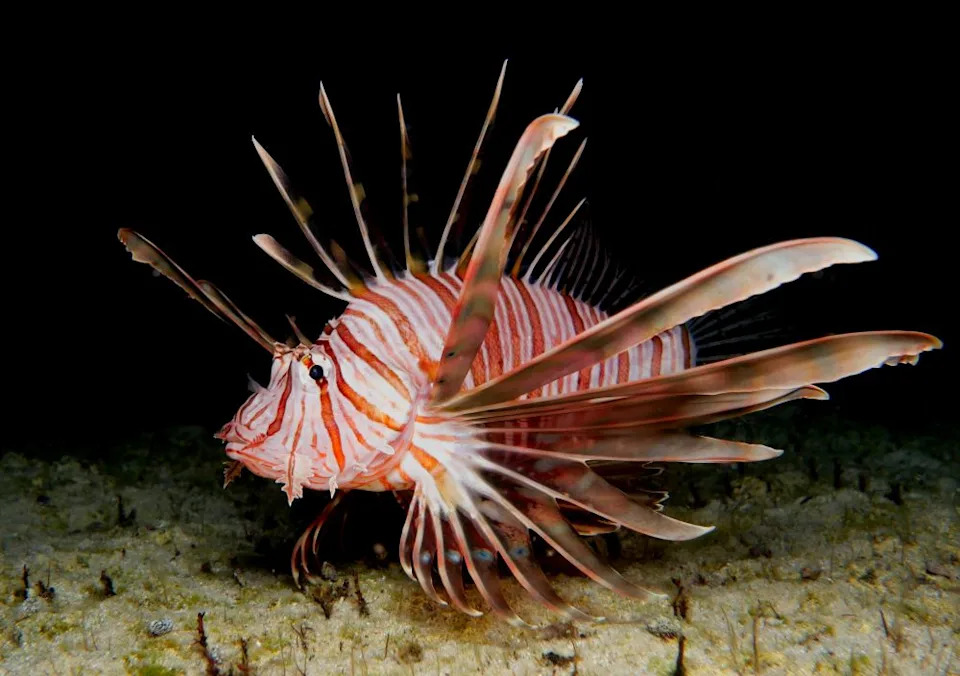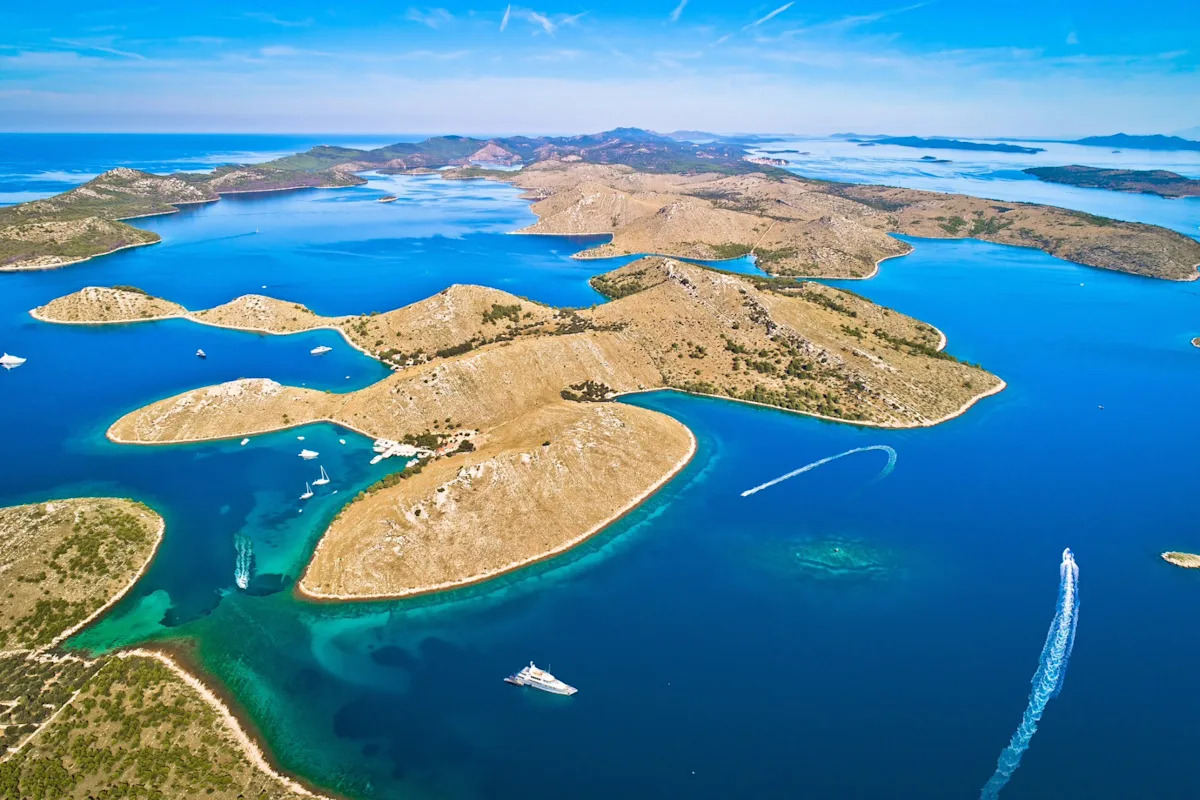Venomous lionfish have been spotted in Croatia’s Kornati National Park for the first time ever.
What’s happening?
Croatia Week reported at the end of July that the venomous lionfish (Pterois miles) had invaded the park’s protected waters. The park’s team observed the fish during routine monitoring.

Photo Credit: iStock
The lionfish are an invasive species with few natural predators and a high predation rate on native species. This means not many animals hunt them, but they love to hunt native animals.
Since 2019, the lionfish have been expanding their presence in the Adriatic Sea. There have been sightings from Vis, Lastovo, and Prevalaka regions in recent years, according to Croatia Week. Over 120 lionfish sightings were reported to the Institute of Oceanography and Fisheries in Split as of the end of 2024.
How are the lionfish harming the park?
Lionfish are venomous fish that can harm humans and other wildlife.
Kornati National Park issued a warning, saying, “The lionfish also has venomous spines. If you come across one, be very cautious – its long, sharp spines are poisonous,” per Croatia Week.
The venom can cause swelling, breathing problems, and sometimes temporary paralysis, along with searing pain. If stung, it’s recommended to soak the area in warm water to neutralize the venom and seek medical care if necessary.
But humans aren’t the only ones in danger. This invasive species can wreak havoc on the protected waters in Kornati National Park. They eat native species, which can weaken those populations and disrupt the ecosystem’s balance. And because they don’t have many natural predators, their hunting goes unchecked.
Invasive species deplete resources, destroy habitats, and push out native animals, weakening biodiversity. Without robust biodiversity, the entire planet suffers. It leads to critical climate issues like food and water scarcity, extreme weather, and disease outbreaks.
Animals like the lionfish can accelerate climate change by invading important and diverse ecosystems like the Kornati National Park.
What’s being done to stop the lionfish?
People are encouraged to report all lionfish sightings to the local authorities. This helps marine institutes track the spread of the species and set up safeguards to protect fragile ecosystems.
Beyond this, some efforts to stop their expansion include using them as food, setting up special traps, and educating the public. People are encouraged to control the population in any way they can, from participating in lionfish spearhunting competitions to donating to marine organizations.
Reducing the lionfish population protects people and crucial marine ecosystems, helping to create a cooler, cleaner future.
Join our free newsletter for good news and useful tips, and don’t miss this cool list of easy ways to help yourself while helping the planet.
